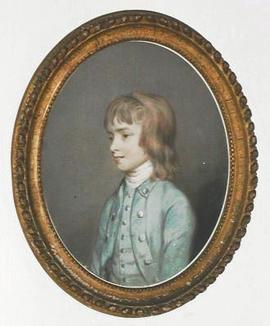Abbot, Charles, Baron Colchester, 1757-1829
- GB-2014-WSA-00184
- Person
- 1757-1829
ABBOT, CHARLES, 1ST BARON COLCHESTER, younger brother of John Farr Abbot (qv); b. 14 Oct 1757; adm. Mar 1763; KS (Capt) 1770; both “acted and looked Thais extremely well in the Eunuchus” of 1772 (Random Recollections of George Colman the Younger, 1830, i, 74); Captain of the School 1774; elected head to Christ Church, Oxford 1775, matr. 14 June 1775, Westminster Student 22 Dec 1775 - 20 Oct 1783, Faculty Student 20 Oct 1783 - res 17 Dec 1796; Chancellor’s Prize for Latin Verse 1777; Vinerian Scholar 1781, Fellow 1786-92; BCL 1783; DCL 1793; Geneva Univ. 1778-9; adm. Middle Temple 14 Oct 1768, called to bar 9 May 1783, Bencher 12 Feb 1802; in brother’s chambers at 11 Kings Bench Walk, Temple, Nov 1779; adm. Inner Temple 25 Nov 1784 and 29 Apr 1785, tenant of chambers there Nov 1784 - May 1788; adm Lincoln’s Inn 26 May 1785; FSA 13 Dec 1792; FRS 14 Feb 1793; Clerk of the Rules, Court of King’s Bench 1794-1801; MP Helston 19 Jun 1795-1802, Woodstock 1802-6, Oxford University 1806-Jun 1817; made his parliamentary reputation as chairman, Select Committee on Finance 1797-8; introduced first Census Act into House of Commons Dec 1800; Chief Secretary for Ireland Feb 1801-Feb 1802, also Secretary of State for Ireland Jun 1801 - Feb 1802; Privy Councillor 21 May 1801; Recorder of Oxford May 1801-Oct 1806; Keeper of Privy Seal (I) from May 1801; hon. LLD Trinity Coll. Dublin 6 Jun 1801; elected Speaker of the House of Commons 10 Feb 1802; resigned on account of ill-health 28 May 1817; cr. Baron Colchester 3 Jun 1817; travelled on European Continent 1819-22; on return took active part in politics until death; a Busby Trustee from 18 May 1802; his Diary and Correspondence were published by his son Charles Abbot, 2nd Baron Colchester (qv), in 1861; m. 29 Dec 1796 Elizabeth, eldest dau. of Sir Philip Gibbes, Bart., Spring Head, Barbados, West Indies; d. 8 May 1829; buried in North Transept, Westminster Abbey. Arms up School. DNB.

